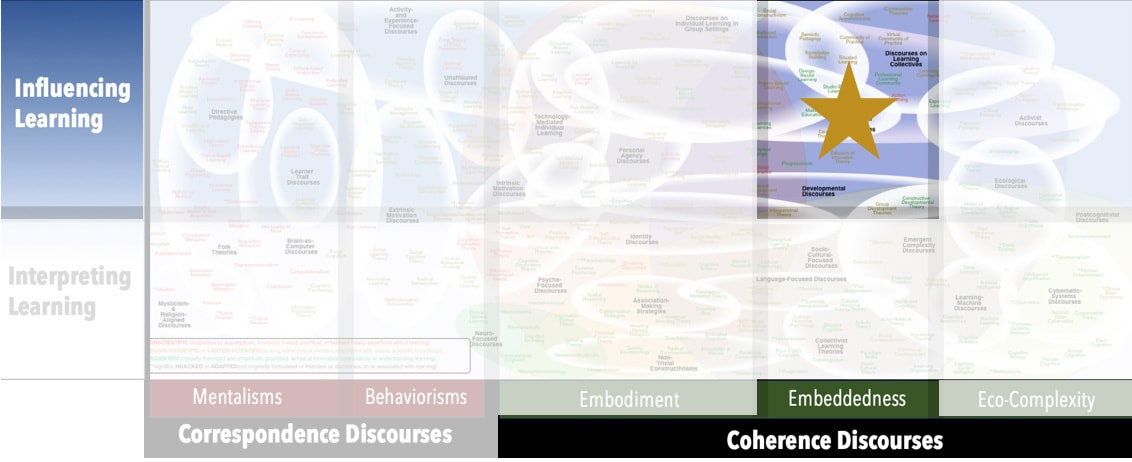AKA
Societal-Reaction Theory
Focus
Role of discourse in defining identities and channeling behaviorsPrincipal Metaphors
- Knowledge is … array of social identities and activities
- Knowing is … acting (according to social norms)
- Learner is … actor (in a social collective)
- Learning is … coming to know a role
- Teaching is … framing (acceptable identities and activities)
Originated
1960sSynopsis
Labeling Theory is focused on how terms used to describe or classify people may contribute to their self-identifications and behaviors. Among its subthemes, Labeling Theory critically examines stereotypes, deviance, and mental illness. Most versions problematize such notions, defining them as adherence to or departure from cultural norms.Commentary
Over the past half century, watered-down versions of Labeling Theory have become part of the everyday orthodoxy of formal schooling as educators have been sensitized the impact of stereotyping, the necessity of diversity in vibrant systems, and the fallacy of fixed intelligence. However, more nuanced versions of Labeling Theory are rarely engaged within the project of formal education.Authors and/or Prominent Influences
Émile Durkheim; George Herbert Mead; Edwin LemertStatus as a Theory of Learning
Labeling Theory is not a theory of learning, but it does offer insight into the how learning is influenced and channeled by such commonplace social artifacts as categories and expectations.Status as a Theory of Teaching
Within formal education, Labeling Theory is most often taken up as a critical consideration in teaching, although it would be inappropriate to label it a theory of teaching.Status as a Scientific Theory
Labeling Theory is associated with a substantial and robust body of evidence.Map Location

Please cite this article as:
Davis, B., & Francis, K. (2022). “Labeling Theory” in Discourses on Learning in Education. https://learningdiscourses.com.
⇦ Back to Map
⇦ Back to List
